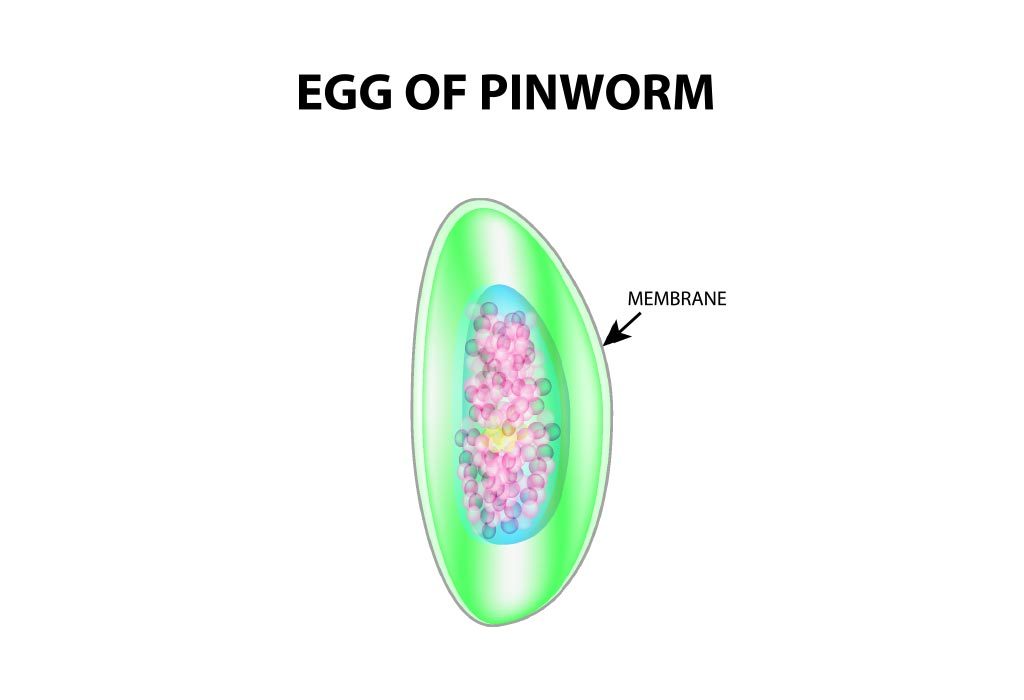In this Article
- What Are Pinworms?
- Are Pinworms Common During Pregnancy?
- Causes of Pinworm Infection During Pregnancy
- Signs and Symptoms of Pinworms
- Does a Pinworm Infection Affect the Unborn Baby?
- How Is Pinworm Infection Diagnosed During Pregnancy?
- How Is Pinworm Infection Treated During Pregnancy?
- Precautions to Take During Pregnancy
Pregnant women experience a lot of changes in their bodies; however, not all of these changes are pleasant – some of them can be downright annoying. Sometimes, women experience an itching sensation in their vaginal or rectal area, usually during the night. Random itching could indicate irritation but if it happens regularly, it could be the pinworm infection. The pinworm infection is a common intestinal parasite infection and is also known as the threadworm. Not many are aware of a pinworm infection and its effect on pregnancy and the growing baby. In this article, we will tell you all about the pinworm infection.
What Are Pinworms?
Pinworms are the parasitic worms that thrive by staying inside the large intestine of a human being. There are both male and female variants of it. The itching that women observe in the vaginal region is a result of the female pinworm emerging out of the anus and laying eggs near the vagina for more pinworms to hatch.
Are Pinworms Common During Pregnancy?
A pinworm infection doesn’t happen because of pregnancy, but it is common during pregnancy. The presence of the parasites that cause pinworms in pregnancy around the household may result in a pinworm infection. Moreover, pinworms can spread rather effectively from one person to another, and if someone does have pinworms, there is a chance that others could have it as well. Pregnancy might bring well-wishers to your home, some of whom might have the infection and thus the infection may spread if you have poor hygiene practices.

Causes of Pinworm Infection During Pregnancy
Pinworms are primarily present only in the genital areas and the anal region. The infection, however, occurs simply due to inadequate hygiene.
- The tiny eggs deposited around the anus by a female worm may spread the infection.
- A person with a pinworm infection will be tempted to scratch the vaginal or anal area, if they do so, the eggs may lodge under their fingernails and may get transferred to anything they touch.
- If you touch the contaminated surfaces during pregnancy and touch your mouth, you may ingest the eggs and could develop the pinworm infection.
- The eggs from a person’s anus can also get transferred to clothes, bedsheet, hands, carpet, undergarments, etc., which may cause the infection to spread.
- Using common towels is a problem as well since an infected person using it to wipe himself clean could leave pinworms or their eggs on it, which may get transferred to another person.
Signs and Symptoms of Pinworms
There are a few prominent signs of pinworm infection that you will notice if you have a pinworm infection:
- The most common sign of a pinworm infection is itching around the anus, especially during the night.
- Spotting pinworms in the poop.
- Abdominal pain.
- A feeling of nausea accompanied by a loss of appetite.
- Substantial weight loss in a person since pinworms take all the nutrition.

Does a Pinworm Infection Affect the Unborn Baby?
If you are pregnant and have pinworm infection, obviously you will wonder whether or not it can result in pregnancy complications. But you need not worry, as the presence of pinworms doesn’t affect the baby in any way. The infection is restricted to the intestinal region and causes discomfort and itching only to the mother. This is why doctors usually stay away from giving any medicine for it to a pregnant woman and suggest using better hygiene practices instead.
How Is Pinworm Infection Diagnosed During Pregnancy?
Your doctor may use one of the following methods to diagnose pinworms:
1. Tape Test
This test uses cellophane tape for diagnosing pinworms. In this test, a piece of plastic tape is placed against the skin around the anus, which is then placed under the microscope to check for pinworms. This test can be performed at home too – the tape can be taken to the doctor to confirm if you have the pinworm infection.
2. Moistened Swab
A doctor or nurse may take a moistened swab from around the anal region to check for pinworms. But most of the times, the treatment is given after local examination when symptoms point towards the infection.
How Is Pinworm Infection Treated During Pregnancy?
There are certain home remedies for pinworms during pregnancy that a woman can opt for, and also some medicines that a doctor might recommend, should the infection get severe.
Medication
If you have the pinworm infection, you can opt for medication. However, you should not take over-the-counter medication for pinworms. You must consult a doctor for the same. In times of pinworm infection, medication is usually suggested to all the family members in order to prevent any other person from spreading it again. A primary dose of albendazole, mebendazole and pyrantel pamoate is suggested as the first-line treatment. This takes care of most worms. After a couple of weeks, a repeat dose is given to take care of any worms that might have survived or freshly hatched. However, these medicines should be taken only when approved by the doctor.
Home Remedies
A pinworm infection is better treated with medicines as compared to home remedies since these can take a long time to be effective. Some people might suggest using wormwood to kill intestinal worms, which is quite effective, but entirely unsafe for a pregnant woman. Instead, opting for a few garlic, cloves and consuming it with vegetables or salads, can be a good starting point to reduce the pinworms from causing any discomfort.
Precautions to Take During Pregnancy
Taking medicines can help treat the pinworm infection and maintaining hygiene can keep them away in the first place. However, by taking precautionary measures, you can prevent the infection.
- Clean your toothbrush thoroughly after every use and keep it in a closed space.
- Clean your house regularly and avoid having meals in the bedroom.
- Choose underwear that fits you snugly and change it at least twice a day.
- Use hot water to wash your clothes with some disinfectant.
- Avoid scratching your anal area constantly.
- Avoid using public toilets.
- Cut your nails regularly to prevent pinworms from getting lodged under your fingernails.
- Keep your hands clean by washing them as frequently as possible.
Presence of pinworms or threadworms in pregnancy can be quite alarming and irritating for women. But it does not pose any risk for the baby. Home remedies can help you get temporary relief and you can treat them effectively once and for all after you deliver your child.









